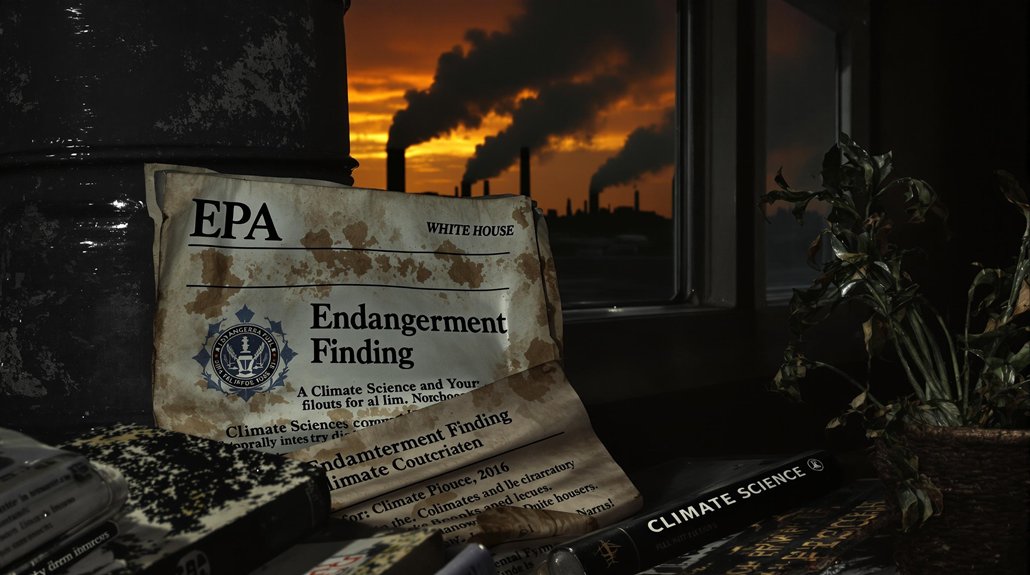The Trump administration plans to reverse Biden-era offshore oil rig cleanup rules that required energy companies to set aside funds for decommissioning. Announced by the Interior Department on May 2, 2025, this change revises 2024 financial regulations for offshore platforms. Industry leaders welcome the policy as reducing costs and operational burdens. Meanwhile, New England senators have introduced legislation opposing new offshore drilling plans. The policy shift marks a broader trend favoring fossil fuel development nationwide.
In a significant policy shift, the Trump administration has announced plans to reverse offshore oil rig cleanup rules established during the Biden era. On May 2, 2025, the U.S. Department of Interior revealed it will revise the Bureau of Ocean Energy Management‘s 2024 Risk Management and Financial regulations. This change affects how oil companies pay for cleanup when offshore oil rigs are no longer in use.
The revised policy targets the decommissioning bonding rule, which required companies to set aside funds for future cleanup operations. This move is part of the administration’s broader goal to reduce regulatory burdens for energy companies. Industry leaders have welcomed the changes, saying they will make operations more cost-effective.
Cutting red tape for energy producers while slashing cleanup requirements – a win-win for industry profitability.
At the same time, the Interior Department announced plans to boost offshore oil and gas drilling. The proposal includes new lease sales in areas like the Gulf of Maine. Officials are seeking public comment on a five-year lease schedule that would open most of the U.S. coastline to drilling. If approved, it would mark the first oil and gas lease sales on the eastern seaboard in decades.
The administration is also creating a new “High Arctic” planning area for oil leasing off Alaska’s coast. These Arctic waters were previously restricted from development under both Obama and Biden administrations. President Trump declared an energy emergency on his first day in office to justify these expanded drilling efforts. Details will soon appear in the Federal Register and on BOEM’s website.
Environmental reviews will move much faster under Secretary Burgum’s new guidelines. Reviews that once took years may now be completed in weeks. This applies to both National Environmental Policy Act and Endangered Species Act processes.
The changes have sparked opposition. New England senators, including Maine’s Collins and King, introduced legislation to ban offshore drilling in their region. They cited risks to fisheries and tourism, industries worth billions to coastal communities.
The administration has also paused offshore wind leasing through a Presidential Memorandum issued January 21, 2025. The Biden administration’s rule had imposed $6.9 billion in additional bonding requirements that the new policy aims to substantially reduce. This policy aligns with the broader fossil fuel renaissance occurring across the industry as companies like BP shift away from renewable investments. This temporary withdrawal creates a regulatory imbalance that favors oil and gas development over renewable energy projects.
References
- https://gcaptain.com/trump-administration-reverses-course-on-biden-offshore-decommissioning-bonding-rule/
- https://www.pressherald.com/2025/05/04/trump-administration-seeks-to-expand-offshore-oil-and-gas-drilling-including-in-gulf-of-maine/
- https://alaskapublic.org/news/politics/washington-d-c/2025-04-21/trump-administration-plans-offshore-oil-leasing-in-alaskas-high-arctic
- https://www.whitehouse.gov/presidential-actions/2025/01/temporary-withdrawal-of-all-areas-on-the-outer-continental-shelf-from-offshore-wind-leasing-and-review-of-the-federal-governments-leasing-and-permitting-practices-for-wind-projects/
- https://gcaptain.com/trump-launches-ambitious-new-offshore-oil-and-gas-leasing-program-establishes-high-arctic-planning-area/








